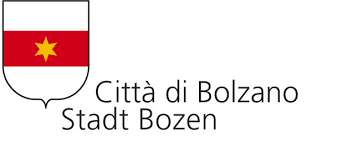Good Practice
POLICY OBJECTIVE
The Municipality of Bolzano is currently empowering “civic centres” (centri civici) to support citizens in reducing the digital divide. Computers and smartphones can be extremely useful to save time but older generations and foreign-born individuals face challenges in using these devices. Our aim is to help citizens to be self-reliant and untangle the difficulties of the digital world.
Although the city of Bolzano is small, mobility to reach services can be a problem if these are all located in the historic city centre. Hence, in 1995, the city of Bolzano decided to shorten the distance between citizens and public services by decentralising public services. In this way, citizens can walk to those centres from their homes in a few minutes.
CONTEXT
Most public services were located in the city centre. To improve service quality, shorten waiting times, and avoid affecting mobility in the city, the Municipality of Bolzano has sought to decentralize public services such as health districts, apothecaries, and the like.
This way, citizens are much closer to them and can easily walk there within 15 minutes.
POLICY DESCRIPTION
The city of Bolzano has 107,530 inhabitants and is divided into five districts, each of which offers all necessary public services. Administrative, cultural, health, and social services are offered to all citizens in the neighbourhood, and are easily accessible on foot or by public transport. These include schools (primary and middle school at a minimum), public libraries, social and health districts, apothecaries, civic centres, which are all municipal offices. Services are placed in strategic positions so that they can be easily accessed by neighbourhood residents.
Early May 2022, a new centre for registry services was opened on the opposite side of town from the city’s central registry office. In this way, citizens can now apply for and collect, for example, digital identity cards, avoiding an overload in the central office. This centre is called “Digital-Bz” and has a second purpose: at a support service for new technologies located within, citizens get help completing online paperwork. The municipality of Bolzano wants to help its citizens, particularly those that face the most challenges, such as the elderly and foreigners, in the current phase of digital transition.
KEY ASPECTS
The location of centres is very important — they must be easily accessible to everyone by public transport or on foot. The centre’s timetables must allow citizens to use the services.
In order to properly plan new neighbourhoods, fundamental steps are followed:
- Neighbourhood demographics and the type of housing to be built (private, cooperative, public) are analysed.
- Based on the categories of citizens who will live in the neighbourhood, services that citizens need are included in the plan (e.g. kindergartens, schools, and playgrounds must be available if new inhabitants will mostly be families with children).
- To make it easier for various social groups to integrate, the conditions for positive coexistence must in place. Support from social service organisations must be guaranteed as well.
- Once neighbourhood needs are identified, working groups are organised to plan the services. Representatives of each service participate and
share their insight. - The action plan is defined with a cooperation methodology and participation of the architect/urban expert leading the project.
RESULTS
In 2021, 87,573 books were borrowed from neighbourhood libraries. Civic centre employees fielded 21,710 enquiries from citizens at various decentralised locations in the city, 12,595 of them face-to-face.
Sylvia
Profanter
Director of the Office for Statistics and Time of the City





